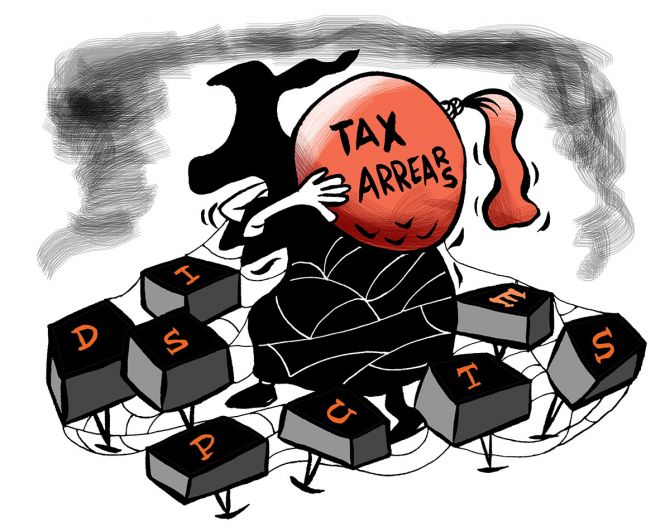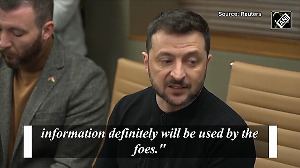As on April 1, income tax arrears have increased to Rs 43 trillion from Rs 24 trillion on April 1, 2023.

The Central Board of Direct Taxes (CBDT), driven by a 'very steep rise' in pending income tax arrears, has decided to create a special team to identify the 'top 5,000 cases' by the end of September.
These cases, which would include unpaid personal income tax as well as corporate tax, constitute nearly 60 per cent of all outstanding dues.
Spotting these cases is part of the CBDT's Central Action Plan (CAP) for this financial year. Disseminated internally to officials, the CAP underlines that 'a more focused and targeted approach is required to manage past tax demands'.
As on April 1, income tax arrears have increased to Rs 43 trillion from Rs 24 trillion on April 1, 2023.
'This is a very steep rise, which requires immediate and urgent action,' the CBDT, which is the highest authority overseeing direct taxes, said in its CAP.
However, of the Rs 43 trillion, net collectible arrears -- after taking out what is considered 'demand difficult to recover' -- work out to Rs 16.69 trillion.
The CBDT aims to reduce it to Rs 7.98 trillion this year. These demands are of Rs 1 crore (Rs 10 million) and above.
Tax arrears, or demands served on assessees in the past but not yet paid, are piling up because of litigation, liquidation of companies, untraceable taxpayers, and a mismatch in tax deductions at source (TDS).
For those of the top 5,000 cases that are under litigation, the CAP says the officials should get lawyers to pursue bunching of the cases at the courts, including at the income tax appellate tribunal, for an early resolution.
In cases where ex-parte orders -- that is, orders without the respondents being in attendance -- have been issued, officials must find out if appeals have been filed.
Specific strategies are to be followed for demands raised in the last three years.
For cases older than 10 years, CBDT officials can take the help of the investigation wing to work with banks and other financial institutions, or consider write-offs.
The CAP also talks about the importance of finding physical records and analysing the nature of demands in the top 5,000 cases.
The officials are to submit a detailed report in cases where the assessee is not traceable, so that a separate strategy can be devised for them.
In addition, the CAP outlines the strategy for identification of potential cases of prosecution, where there is short payment of TDS, and for nudging the reporting entities -- such as banks and post offices -- to report on cash transactions of above Rs 200,000.
High-value expenditure needs to be verified with information about the taxpayer.
'Therefore, it is imperative to identify the sources which could be involved in possible circumvention, such as hotels, banquets, luxury brand retailers, IVF clinics, hospitals, designer clothing stores, NRI quota medical college seats, etc,' the CAP has said.
These moves would help widen the tax base. The apex direct tax body has emphasised that the target for adding new income tax return filers in the current financial year is 10 per cent of the filer base at the end of FY24, as compared to an increase of 10.18 per cent achieved in FY21, 8 per cent in FY22, 9.27 per cent in FY23, and 11.9 per cent in FY24.
Feature Presentation: Aslam Hunani/Rediff.com












 © 2025
© 2025